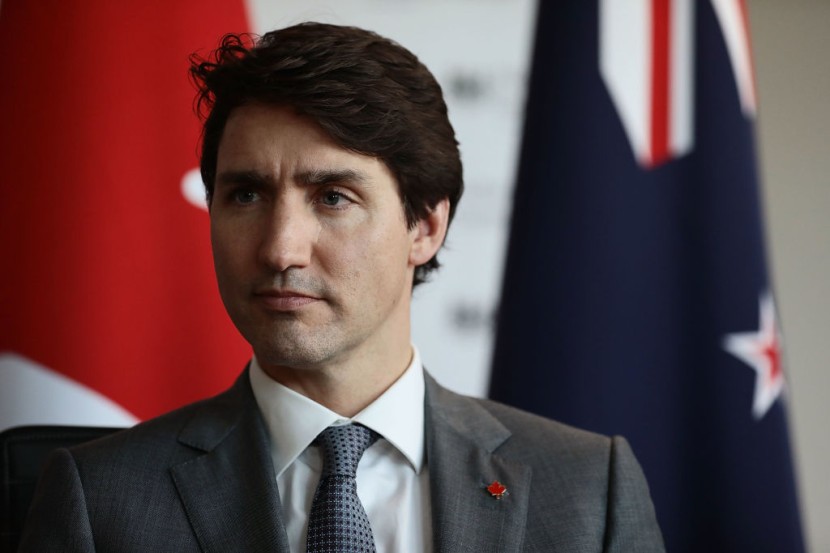
Invoking the Emergencies Act has been "essential," according to Canadian Prime Minister Justin Trudeau, and it will continue to be needed in the face of future blockades.
In reaction to demonstrations over Canada's COVID-19 limitations, the House of Commons is slated to vote on the legislation Monday night. On February 14, Trudeau used the Emergencies Act for the first time in Canadian history.
Trudeau Believes Trucker Protest Threats Remain
The blockades that halted billions of dollars in trade and the occupation in Ottawa's downtown core have since been lifted. Trudeau, on the other hand, cautioned that trucks outside of Ottawa may be preparing future blockades and that special powers are still required.
The Emergencies Act gives authorities more ability to put a stop to prolonged protests, such as establishing no-go zones, ordering tow truck firms to haul away cars, and suspending truckers' bank accounts.
Following weeks of illegal activity, demonstrators pestering neighbors, billions of dollars in halted commerce, and vandalism of the National War Memorial, Trudeau claimed the uncommon measure was required.
Meanwhile, on Wednesday, the Ottawa City Council will present a package of assistance measures to help harmed small companies. The takeover of downtown Ottawa by the "Freedom Convoy" has had a long-term impact on local businesses, Newsweek reported.
Read Also : Boris Johnson To Announce "Living With COVID" Plan in UK; Questions Spark as Legal Restrictions End
Canada Parliament Backs Justin Trudeau's Emergency Powers
On Monday (February 21), Canada's Parliament endorsed Prime Minister Justin Trudeau's decision to employ seldom-used emergency powers to terminate pandemic-related demonstrations that have shut down Ottawa's streets for more than three weeks.
The Emergencies Act was passed by a vote of 185 to 151 in Parliament, with the left-leaning New Democrats supporting the minority Liberal administration. Some opposition MPs have called Trudeau's extraordinary measures, which he unveiled a week ago, unnecessary and an abuse of authority.
Over the weekend, Canadian police in Ottawa were able to restore order. Initially, the demonstrators intended to put a halt to cross-border COVID-19 vaccination regulations for truck drivers, but the occupation morphed into a larger anti-Trudeau rally. For six days, protesters snarled trade by blocking the busiest land border between Canada and the United States.
Trudeau told reporters earlier on Monday that his government still needs temporary emergency powers, citing "serious worries" about threats in the coming days. By the time the operation finished on Sunday, police had cleared demonstrators from downtown Ottawa, making 191 arrests and towing 79 cars.
Trudeau also urged people to band together, adding, "We don't know when this pandemic will stop, but it doesn't mean we can't begin to heal as a nation." Trudeau is accused of misusing his authority by certain members of the main opposition Conservative Party. Dean Allison, a legislator, condemned the use of "authoritarian military-style techniques" against the demonstrators, as per Straits Times.
On "Jesse Watters Primetime," Laura Berger, head of the Canadian Civil Liberties Association, stated that Prime Minister Justin Trudeau's decision to activate the Emergencies Act amid the upheaval in Ottawa, Ontario, was a power overreach.
It was the first time the administration has used the statute since it was introduced in 1988, according to Laura Berger. "Extraordinary instructions allowing for authorities that don't ordinarily exist," she remarked, referring to the legislation.
A "Freedom Convoy" rally, in which truckers and demonstrators opposed to COVID-19 restrictions blocked down the capital city of Ottawa for three weeks until police were able to evacuate the region, prompted Trudeau's response.
The act is not limited to terrorism, according to Berger, but "the threshold established in the language is extremely and deliberately high." It must be something so serious that it exceeds the provinces' capacity or authority to deal with it, and it must be something so serious that it cannot be dealt with under any other existing Canadian law, according to Fox News.
Related Article : PM Justin Trudeau Freezes Truckers' Bank Accounts Illegally For Refusal of the Freedom Convoy To Back Down
@YouTube








